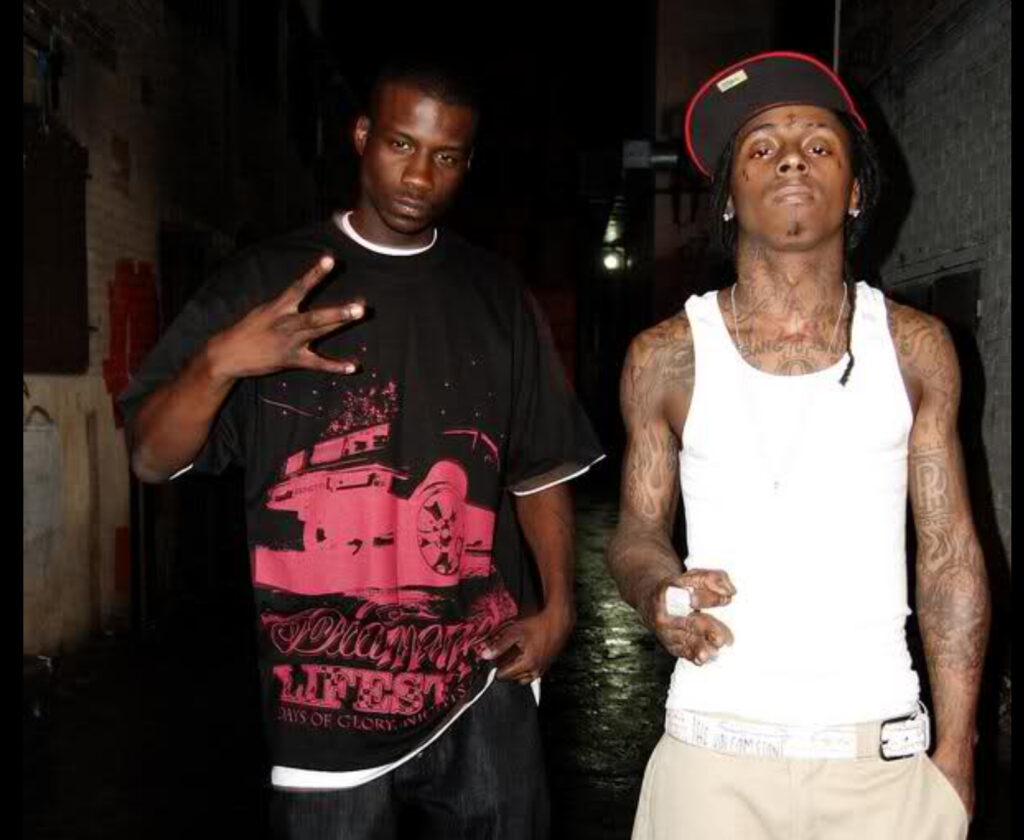In an era saturated with rap anthems built for virality and flash, Jay Rock’s “All My Life,” featuring Lil Wayne, offers something far more durable: testimony. It’s not just a track—it’s a ledger. A confessional, a prayer, a scream against the storm. Released as a deeply personal reflection on survival, the song is less concerned with proving status than it is with preserving truth.
For Jay Rock, the Watts-born rapper who helped shape the sound and soul of Top Dawg Entertainment, this record feels like a reckoning—not just with his past, but with an industry that only remembers you when you’re rising.
“All My Life” opens like a pulse. The production, built on somber piano chords and a steady mid-tempo rhythm, places the listener in a suspended emotional space: half funeral, half fight song. But this is not about mourning—it’s about clarity. Jay Rock isn’t begging for empathy; he’s delivering a report from the frontlines of American inequality, personal loss, and the cost of trying to make it out while still staying real.
“Made it out, it’s a miracle”: Struggle as Structure
When Jay Rock says he’s made it out, the words don’t land like a flex—they sound like survivor’s guilt. He delivers his verses with gravel-voiced intensity, not polished, not sanitized, but rooted. The struggle is not simply backdrop here; it’s the architecture of the song.
There’s no glamor in his storytelling. He raps about watching people fall off, about funerals, about empty promises from the streets. “I seen n****s lose it all / trying to play the game.” The game, of course, is the streets—but it’s also the music industry. In both, the margins for error are brutal. One mistake, and you’re off the board. And as Jay Rock has learned, even loyalty doesn’t guarantee safety.
The hook—echoing “all my life, been grinding all my life”—isn’t just motivational rhetoric. It’s a painful declaration that for many Black men, especially those from environments shaped by systemic neglect, grinding isn’t a choice. It’s a condition. It’s the only available path, even if it leads nowhere.
Lil Wayne’s Verse: The Veteran’s Testimony
Then comes Lil Wayne. The feature feels intentional, not just sonically, but spiritually. Wayne, a veteran whose influence has shaped generations, adds a verse that carries both swagger and scars. He’s no longer the young firebrand of Tha Carter II—this is the Wayne who’s survived overdoses, lawsuits, incarceration, and the commodification of his very identity.
His voice, slightly slowed and barbed, enters like a warning: don’t mistake success for peace. “Had to fight demons with my left and my right hand.” It’s a raw moment of confession that repositions Wayne not as a legend, but as a human—still walking the tightrope between pain and performance.
What makes this pairing work isn’t just their lyrical prowess—it’s the symmetry of their survival. Jay Rock and Wayne are men from different regions, different eras, but united by the wear and tear of building careers in a business that feeds off their trauma but rarely honors their healing.
The Industry’s Short-Term Memory
Part of what makes “All My Life” so resonant is its quiet confrontation of the music industry’s attention economy. Jay Rock has never been the flashiest member of TDE. In the shadow of Kendrick Lamar’s Pulitzer-winning ascent, the acrobatic ambition of Ab-Soul, and the commercial sweep of SZA and ScHoolboy Q, Jay Rock has often been cast as the dependable soldier—the one who held the foundation while others soared.
But in this record, we’re reminded that consistency is a form of greatness too. The industry may overlook men like Jay Rock, who don’t feed its appetite for spectacle, but their work—layered, grounded, and fiercely lived—outlasts trends.
“All My Life” sounds like a reclamation of narrative. Jay Rock isn’t demanding recognition. He’s simply refusing to be forgotten. And in doing so, he exposes how deeply the industry relies on Black struggle as content while discarding the very people who lived it.
Pain and Production: Sonic Choices That Speak
The beat is melancholy, built on minor keys and meditative spacing. There’s a starkness to the production—no bombast, no sugary hooks. It lets the verses breathe. It forces you to sit in the discomfort, to absorb the ache behind the lines. This is a song you don’t just listen to—you sit with it.
And it’s in that stillness that the truth emerges. Every bar, every snare hit, every breath between lines feels weighed down by history—personal, cultural, generational.
The sparseness of the production mirrors the isolation of success that many artists feel after years of grinding. Fame doesn’t fix the trauma. Money doesn’t reverse the loss. Recognition doesn’t replace the people left behind.
Survival as Resistance
The heart of “All My Life” is resistance—not in the form of protest slogans or headlines, but in the quiet, painful act of endurance. Jay Rock’s career has been a series of slow burns: near-death car crashes, label setbacks, long breaks between projects. Yet he’s still here. Still evolving. Still telling the truth when it’s easier to smile and pretend.
This record is a reminder that for artists like Jay Rock and Lil Wayne, survival itself is political. It’s not just about staying alive—it’s about holding onto your voice in an ecosystem that wants to flatten you into product.
Their verses don’t just recount what they’ve survived—they challenge the listener to consider what survival costs. The betrayal, the boredom, the loneliness. The death of friends. The disillusionment with fame. These are not clichés—they are lived realities rendered in high fidelity.
Impression
“All My Life” is not a hit in the traditional sense. It likely won’t dominate summer playlists or soundtrack TikTok dance trends. But it will linger. It will be revisited. It will be quoted in eulogies and played during midnight drives. It will speak to people trying to keep going—not for glory, but for dignity.
In a world that often rewards spectacle over substance, Jay Rock’s refusal to conform is its own kind of brilliance. And Lil Wayne, stepping in not as a headliner but as a fellow witness, deepens the song’s emotional range.
Together, they give us a track that doesn’t just sound good—it feels necessary.
No comments yet.








